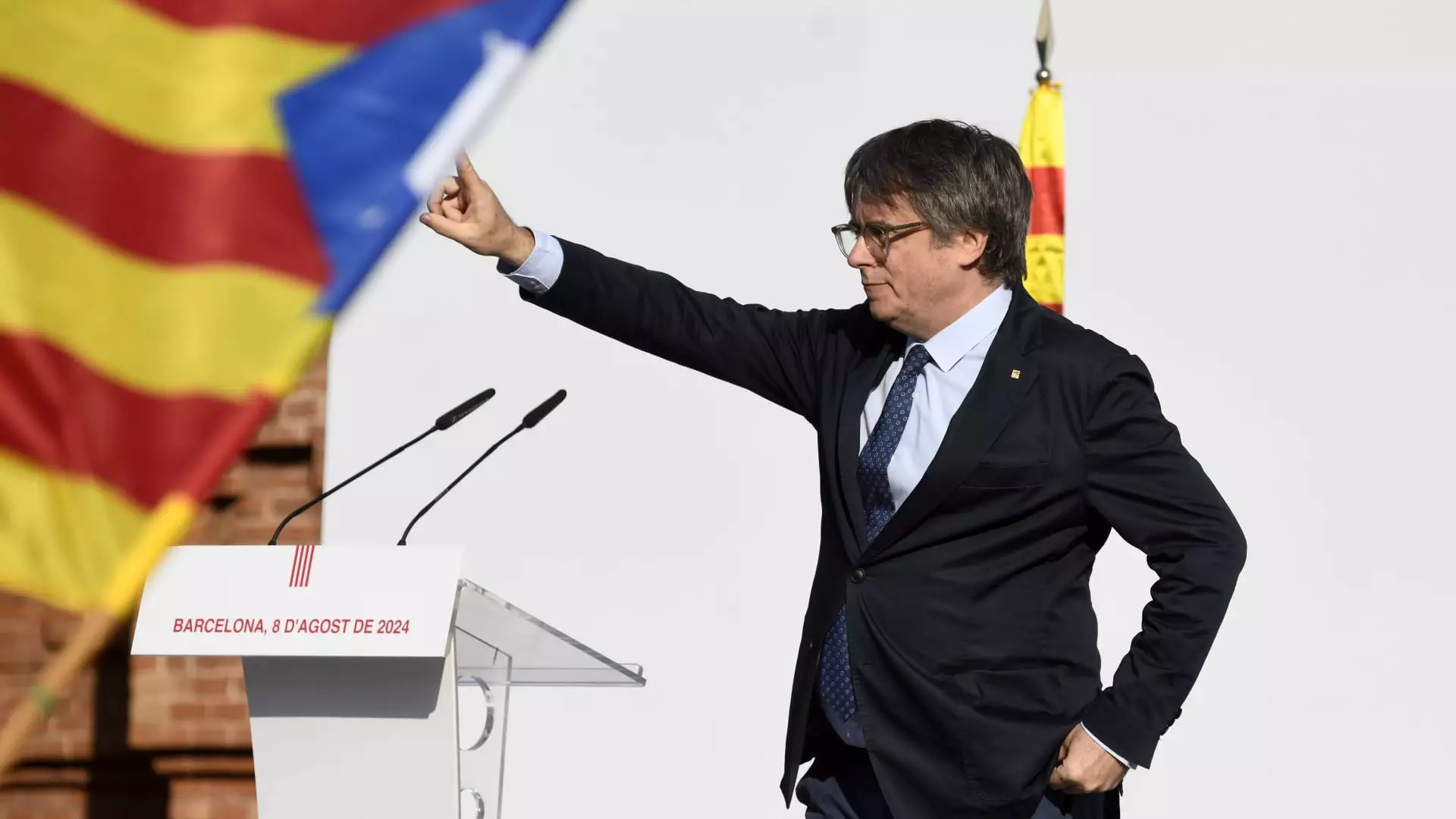Carles Puigdemont, the former Catalan separatist leader, made a bold move by returning to Spain after seven years of self-imposed exile. This decision defied a pending arrest warrant and sparked a massive police manhunt, creating a tense situation in Barcelona. Despite the potential consequences, Puigdemont addressed a crowd of supporters in Barcelona, defiantly declaring that it is not a crime to have a referendum for Catalan independence.
After his speech, Puigdemont seemingly disappeared into the crowd, outsmarting the heavy police presence in the area. Authorities quickly launched “Operation Cage,” setting up roadblocks in an attempt to locate Puigdemont’s vehicle. Through social media updates, Puigdemont taunted his pursuers, creating a sense of intrigue and challenge in the ongoing manhunt.
Puigdemont, at 61 years old, is widely seen as a symbol of the Catalonian separatist struggle against Spanish national control. Despite facing charges of embezzlement, which he denies, Puigdemont’s return overshadowed the debate for the investiture of Catalonia’s new president Salvador Illa. His reappearance also stirred controversy in Spain’s political sphere, with different parties expressing outrage and demanding accountability.
Puigdemont’s return poses both a challenge and an opportunity for the Socialist administration of Prime Minister Pedro Sanchez. The administration depends on the votes of Puigdemont’s Junts party to maintain parliamentary majority and has been working to improve relations with Catalonia. However, Puigdemont’s reappearance adds a layer of complexity to an already delicate political landscape, potentially affecting future negotiations and decisions.
The passage of a contentious amnesty Bill, aimed at pardoning participants in the Catalan independence movement, took a dramatic turn with Puigdemont’s return. While the Bill narrowly passed, it faced challenges due to Supreme Court decisions excluding Puigdemont from receiving amnesty. This legal battle further complicates the already complex relationship between Catalonia and the Spanish government.
Overall, Carles Puigdemont’s return to Spain has reignited tensions and raised important questions about the future of Catalan independence movements and the broader political landscape in Spain. As the situation continues to unfold, it is clear that Puigdemont’s actions will have far-reaching implications for both Catalonia and the country as a whole.


Leave a Reply